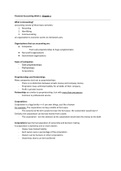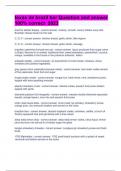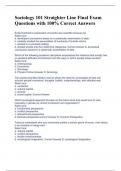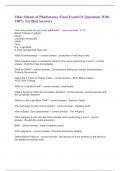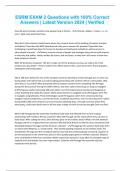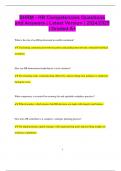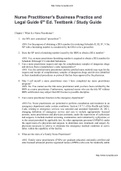Samenvatting
Summary Finance 1 for Business (Corporate Finance, 5th edition Global Edition)
- Instelling
- Universiteit Van Amsterdam (UvA)
If you're having a tough time keeping up with your Finance 1 for Business course, struggling to keep track of lecture materials and required readings, and spending too much time summarizing textbook chapters, look no further than this complete and detailed summary of all the required reading materi...
[Meer zien]
